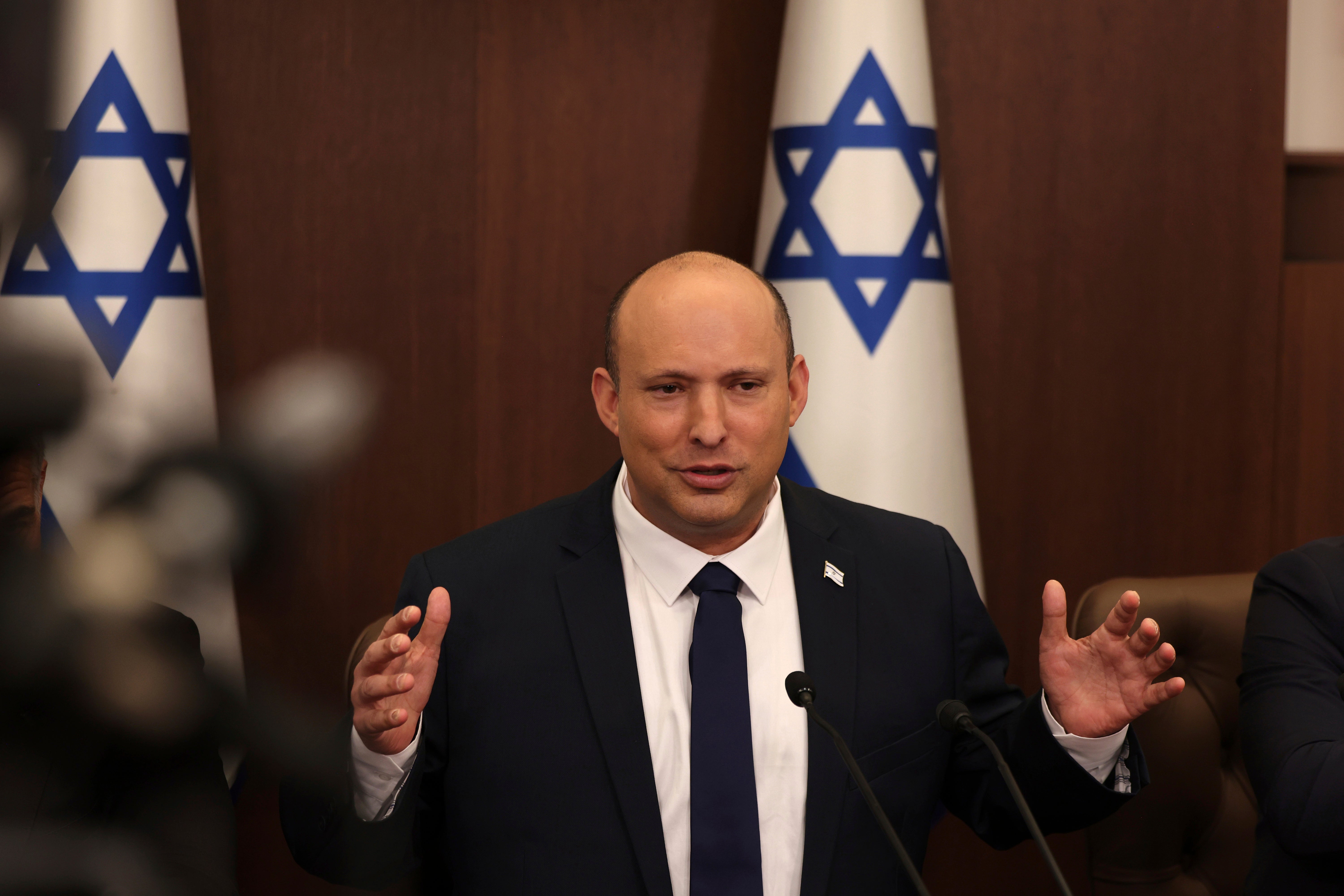Israeli PM Bennett in snap UAE visit amid standoff with Iran
Israel's prime minister was on a surprise visit to the United Arab Emirates

Your support helps us to tell the story
From reproductive rights to climate change to Big Tech, The Independent is on the ground when the story is developing. Whether it's investigating the financials of Elon Musk's pro-Trump PAC or producing our latest documentary, 'The A Word', which shines a light on the American women fighting for reproductive rights, we know how important it is to parse out the facts from the messaging.
At such a critical moment in US history, we need reporters on the ground. Your donation allows us to keep sending journalists to speak to both sides of the story.
The Independent is trusted by Americans across the entire political spectrum. And unlike many other quality news outlets, we choose not to lock Americans out of our reporting and analysis with paywalls. We believe quality journalism should be available to everyone, paid for by those who can afford it.
Your support makes all the difference.Israeli Prime Minister Naftali Bennett was on a surprise visit to the United Arab Emirates on Thursday, a snap trip that came as efforts to salvage a deal over Iran's nuclear program were stalled amid a deepening standoff with Tehran.
The visit was Bennett's second public trip to Abu Dhabi since Israel and the UAE agreed to normalize ties in 2020 after years of quiet cooperation, mainly over their shared concerns over Iran's nuclear capabilities.
A statement from Bennett's office said the Israeli leader will meet UAE President Mohamed bin Zayed and that the two will discuss “various regional issues,” with Iran likely to top the agenda.
In a video statement recorded before departing, Bennett commended countries at an International Atomic Energy Agency meeting in Vienna on Wednesday who voted to censure Iran over its transparency about nuclear activities at three undeclared sites in the country.
“We see here a firm stance by the countries of the world regarding the distinction between good and evil, as they clearly state that Iran is concealing things. We will not let up on this issue,” he said before boarding a plane to the UAE.
The IAEA said Thursday Iran plans to ramp up its uranium enrichment, with the installation of advanced centrifuges.
Israel considers Iran to be its greatest enemy and it strongly opposed the 2015 deal. It says it wants an improved deal that places tighter restrictions on Iran’s nuclear program and addresses Iran’s long-range missile program and its support for hostile proxies along Israel’s borders. Israel also says the negotiations must be accompanied by a “credible” military threat to ensure that Iran does not delay indefinitely.
Iran and world powers agreed in 2015 to the nuclear deal, which saw Tehran drastically limit its enrichment of uranium in exchange for the lifting of economic sanctions. In 2018, then-President Donald Trump unilaterally withdrew America from the accord, raising tensions across the wider Middle East and sparking a series of attacks and incidents.
Talks in Vienna over Iran’s tattered nuclear deal have been stalled since April. Since the deal’s collapse, Iran has been running advanced centrifuges, and has a rapidly growing stockpile of enriched uranium.
Iran insists its program is for peaceful purposes, though U.N. experts and Western intelligence agencies say Iran had an organized military nuclear program through 2003.
Israel and the UAE agreed to thaw ties under the U.S. brokered agreements known as the “Abraham Accords,” which saw similar deals struck with Bahrain, Morocco and Sudan. Since then, Israel and the UAE have deepened ties in tourism and trade, to the dismay of the Palestinians who long relied on an Arab wall of support to serve as leverage against Israel.
Bennett's trip comes as Israel is on the cusp of another political crisis, with members of his fragile coalition threatening to bolt unless the government can pass a law over the legal status of its West Bank settlers.